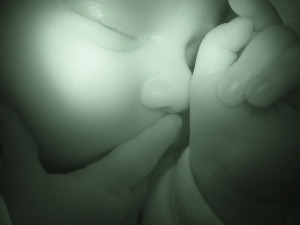Failure to Recognize Signs of Fetal Distress During Delivery Can Lead to a Malpractice Claim
Doctors and medical staff have to look out for a number of issues that can arise during a child’s birth. One of these involves the amount of oxygen that the baby is receiving during the delivery. Hypoxic-ischemic encephalopathy, or HIE, is a brain injury caused by oxygen deprivation to the brain. If a baby goes too long without enough oxygen, brain tissue can be destroyed. HIE can cause severe impairments or death.
 Jury Awards Family $55 Million After Baby Is Born with HIE
Jury Awards Family $55 Million After Baby Is Born with HIE
A jury recently awarded a mother and father $55 million for injuries their son suffered during his birth. Their baby was born in November 2009, one week past his due date. According to one news source, the obstetrician who handled the delivery was scheduled to induce the mother the day before the baby was born. However, her water broke a few hours before the scheduled induction. Her labor progressed slowly, and the doctor administered Pitocin to speed up contractions.
The labor slowed down and eventually stopped completely. The woman was petite, and because the baby’s due date had passed it was possible that the baby was too large to be born vaginally. After more than 24 hours had passed since the mother arrived at the hospital, the obstetrician discussed using a vacuum extracting device. This type of device affixes to the baby’s scalp in order to pull the baby through the birth canal. The baby’s shoulders became stuck, and the vacuum was used for 17 minutes. The baby was born limp and colorless.
Their son was diagnosed at delivery with HIE—neurological impairments caused by a lack of oxygen. He now has cerebral palsy, impaired motor skills, difficulty speaking, and is unable to go to the bathroom on his own. He will likely also face many challenges in the future.
In a lawsuit against the hospital, the parents argued that the administration of Pitocin caused the baby fetal distress, and that Pitocin should not have been used in this case because it can cause contractions to become too forceful, causing trauma to the baby. In addition, their lawyer explained that while the vacuum was being used on the baby, the fetal monitoring showed a prolonged period of significant hypoxia, or oxygen deprivation. During the trial, the hospital argued that it provided appropriate care and did not cause harm to the baby. The hospital provided testimony from nationally renowned experts at Johns Hopkins, Harvard, and Children’s Hospital of Philadelphia who agreed that the hospital provided appropriate care. However, in this case, the jury disagreed, and found in favor of the plaintiffs.
Has Your Child Suffered a Birth Injury?
If your child suffered a birth injury during delivery, you may be able to seek compensation from the hospital, doctors, and staff that delivered your baby. The birth injury lawyers at Wais, Vogelstein, Forman, Koch & Norman can help you get the compensation you deserve. Our attorneys have represented clients in a wide range of birth injury claims against some of the largest hospitals and hospital systems in Baltimore and Maryland. To speak learn more, call us at (410) 998-3600 or contact us through our website to schedule a free consultation.
